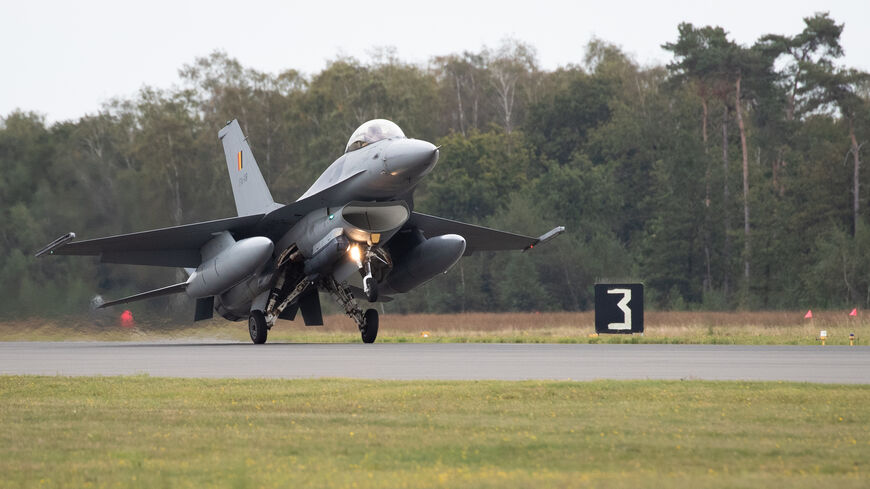Metin Gurcan

Turkey’s request from the United States for 40 F-16 fighter jets and 80 modernization kits for its existing aircraft caught many by surprise last week, coming amid a lingering crisis between the two NATO allies over Ankara’s purchase of Russian S-400 air defense systems and its apparent intention to advance military cooperation with Russia.
News of the requested purchase, estimated at some $7 billion, broke days after Turkish President Recep Tayyip Erdogan met with his Russian counterpart, Vladimir Putin, in Sochi on Sept 29. Afterward, Erdogan raised the prospect of buying a second batch of S-400s, even as the fate of Turkey’s existing four batteries remains in limbo, as well as further cooperation with Russia in aerospace and submarine and ship projects.
The request for new F-16s is the most rational decision Ankara could make in the current circumstances. The shortcomings of the Turkish air force will only grow down the road, given Turkey’s expulsion from the F-35 joint strike fighter program over its purchase of the S-400s, delays in the development of its first home-built warplane, and the aging of its existing F-16s. Security analysts point out that Turkey’s aerial warfare capacity faces a major techno-generational challenge in the next decade or two. Neither Turkey’s TF-X indigenous jet project nor its locally made armed drones, which have attracted much international attention recently, are likely to close that techno-generational gap by the 2030s.
Thus, the purchase of new F-16s, coupled with a comprehensive upgrade of existing ones, would be a good interim solution. Also, as a long-standing user and license-producer of the F-16s, Turkey would have ample advantages in terms of infrastructure, maintenance and pilots.
But can Turkey overcome political hurdles? Lockheed Martin, the manufacturer of the jets, is a very powerful actor in the US defense industry and might lobby on Ankara’s behalf. To get around US sanctions against the Defense Industries Presidency, Turkey’s main procurement agency, Ankara could use the Defense Ministry to lead the request.
Yet, anti-Turkey sentiment is rife on both sides of the aisle in the US Congress. Turkey tested its S-400s on F-16 jets during trials in November 2019, activating the radars of the Russian-made systems. The use of F-16s in such tests only aggravated congressional opposition to a large military sale to Turkey. So why would Ankara make a request that stands almost no chance of clearing Congress? Is it a diplomatic maneuver to justify Ankara’s rapprochement with Moscow to its domestic public and the international community?
Sources in Ankara told Al-Monitor that the Turkish government sees the request as one last test of confidence with the Joe Biden administration, stressing that the administration could convince Congress to approve the sale if it truly cares to keep Turkey from gravitating to Russia. The request is seen as a sort of a junction, with Ankara bracing for a new strategy, depending on Washington’s response.
Consequently, could Ankara turn to Moscow for a fifth-generation warplane such as the Sukhoi Su-35 should the United States turn down its request? In a memorable episode in August 2019, shortly after the United States barred Turkey from the F-35 program, Putin assured Erdogan that Ankara could buy Su-35 jets if it so wished as he treated him to ice-cream and showed off Russia’s latest military technologies at an air show near Moscow. Many in Turkey now wonder whether Ankara made the F-16 request only to have it rejected, in a calculated move to lay the ground for warplane negotiations with Russia.
As someone who closely followed Turkey’s S-400 acquisition, this author finds it hard to rule out such a scenario, despite all arguments that Turkey’s use of Russian warplanes is technically inviable.
Buying Russian warplanes would be a very costly option for Turkey, as it would require a thorough revision of its existing weapons, logistics and training systems. The Su-35 jet, for instance, would require radical changes in training programs, simulators, other infrastructure, the pilot pool and even doctrine. Moreover, such a move would almost certainly trigger harsher US sanctions against Turkey.
But after the crisis-fraught purchase of the S-400s, one must question whether Ankara still commands enough rationality to weigh the pros and cons. In a move that only compounds such misgivings, Erdogan talked one-to-one with Putin in Sochi without an official Turkish interpreter or other delegation members from either side in attendance.
The S-400 experience makes it difficult to dismiss the scenario of Erdogan going for a Russian warplane despite all the geopolitical and technical risks and the objections of the security establishment in Ankara. One needs to keep in mind, however, that such a move would be Erdogan’s decision and not Turkey’s.
Rationally, Turkey should do whatever it takes to return to the F-35 program, which is crucial both for the warfare capacity of the Turkish air force and technological and economic gains by the Turkish defense industry. In such momentous decisions, however, Erdogan’s priorities, swayed by his political ambitions at home, have come to outweigh those of Turkey. And the more Erdogan’s poll numbers sag ahead of elections in 2023, the more his priorities are likely to clash with those of Turkey.
No comments:
Post a Comment